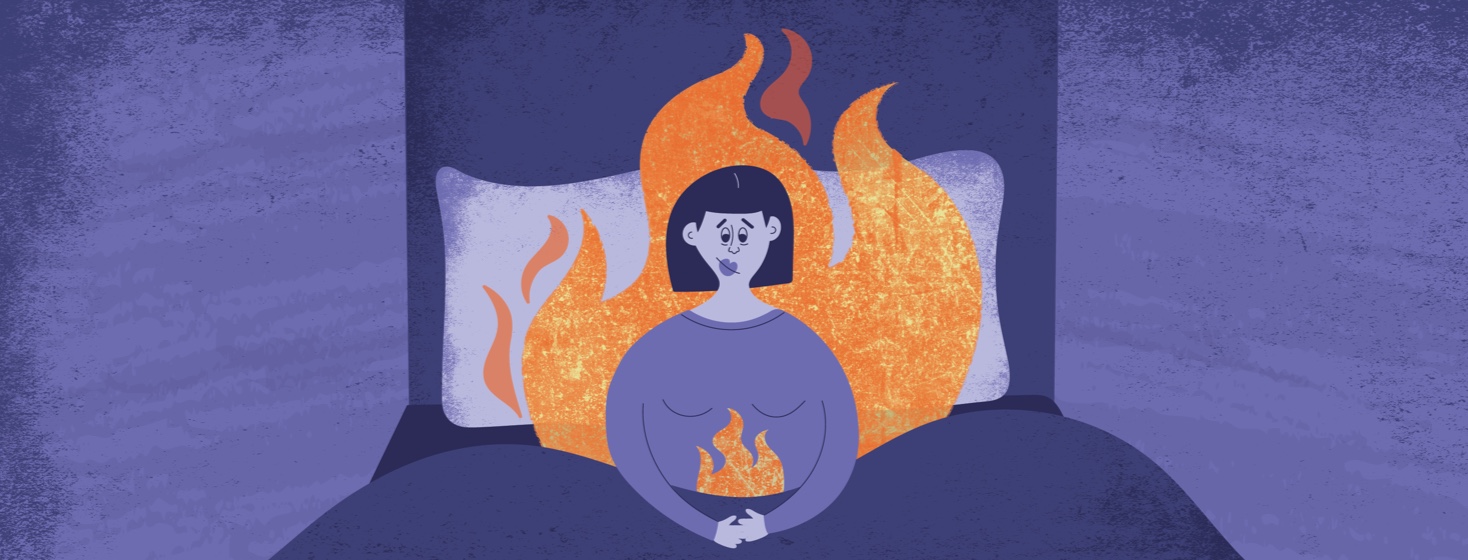Endometriosis and Insomnia
Individuals suffering with endometriosis can face many difficulties when it comes to acquiring sleep. Some of these issues are the pain we experience include hot flashes or night sweats and migraines. Ultimately any of these elements can be enough to disrupt an individual’s sleep, much less when combined.
Effects of pain on sleep
Many individuals with endometriosis struggle with intense chronic pain. This pain can easily prevent individuals from receiving quality sleep at night. In my opinion, pain and sleep create a viscous cycle. Severe pain makes it difficult for individual to sleep. High pain can make it especially difficult to get quality sleep. When our bodies do not get enough sleep, our pain tolerance and pain threshold can be lowered. This increases the amount of pain our bodies are trying to operate under. The increased pain decreases the ability to sleep and the quality of sleep even more, hence the vicious cycle between pain levels and lack of sleep.
My old specialist that was able to help me the most and gave me a prescription sleep aid. When my pain was still unmanageable, he wanted to give me an option to be able to sleep through the pain. While I doubt the same sleep aid would be able to help me through severe pain 16 years later, it was helpful at the time. I do believe most of us have experienced the type of pain that is so extreme that we are unable to even concentrate much less move.
Hot flashes/night sweats
A common treatment for endometriosis involves using medications to place the body in pseudo-menopause. This can help manage endometriosis because it reduces the growth and spread of the endometrial adhesions. I personally used this treatment course in order to manage me endometriosis. I was only 15 years old when I started the initial step of using Lupron injections to stop my menstrual cycles.
A negative aspect of this treatment involves the individual experiencing the regular side effects of menopause. While some of the side effects are difficult to notice, such as the loss of bone density, others are more noticeable. A very noticeable side effect is the menopausal hot flashes. These hot flashes, or as I called them ‘power surges,’ can make for some miserable experiences. Normally hot flashes are called night sweats when they occur during the night. These night sweats can drastically affect quality of sleep. Waking up in the middle of the night with soaking wet night clothes and bedding is extremely uncomfortable and can make it very difficult to go back to sleep.
Migraines
While the pain directly related to endometriosis is enough to overwhelm people, individuals with endometriosis can also suffer from migraines. Endometriosis tends to cause hormonal imbalances which can directly cause migraines. The effects that many endometriosis treatments have on hormones can also trigger migraines. In addition to the various types of pain brought on by a migraine, many people also experience symptoms such as nausea, vomiting, sensitivity to lights and sounds, and fatigue. A migraine can create additional sleep problems due to many of the migraine symptoms.
The difficulty of managing insomnia in patients with endometriosis is in part due to the many elements that accompany endometriosis. It is also almost impossible, at times, to determine if these issues are a result of insomnia or a consequence of the effects on the body of having insomnia.

Join the conversation